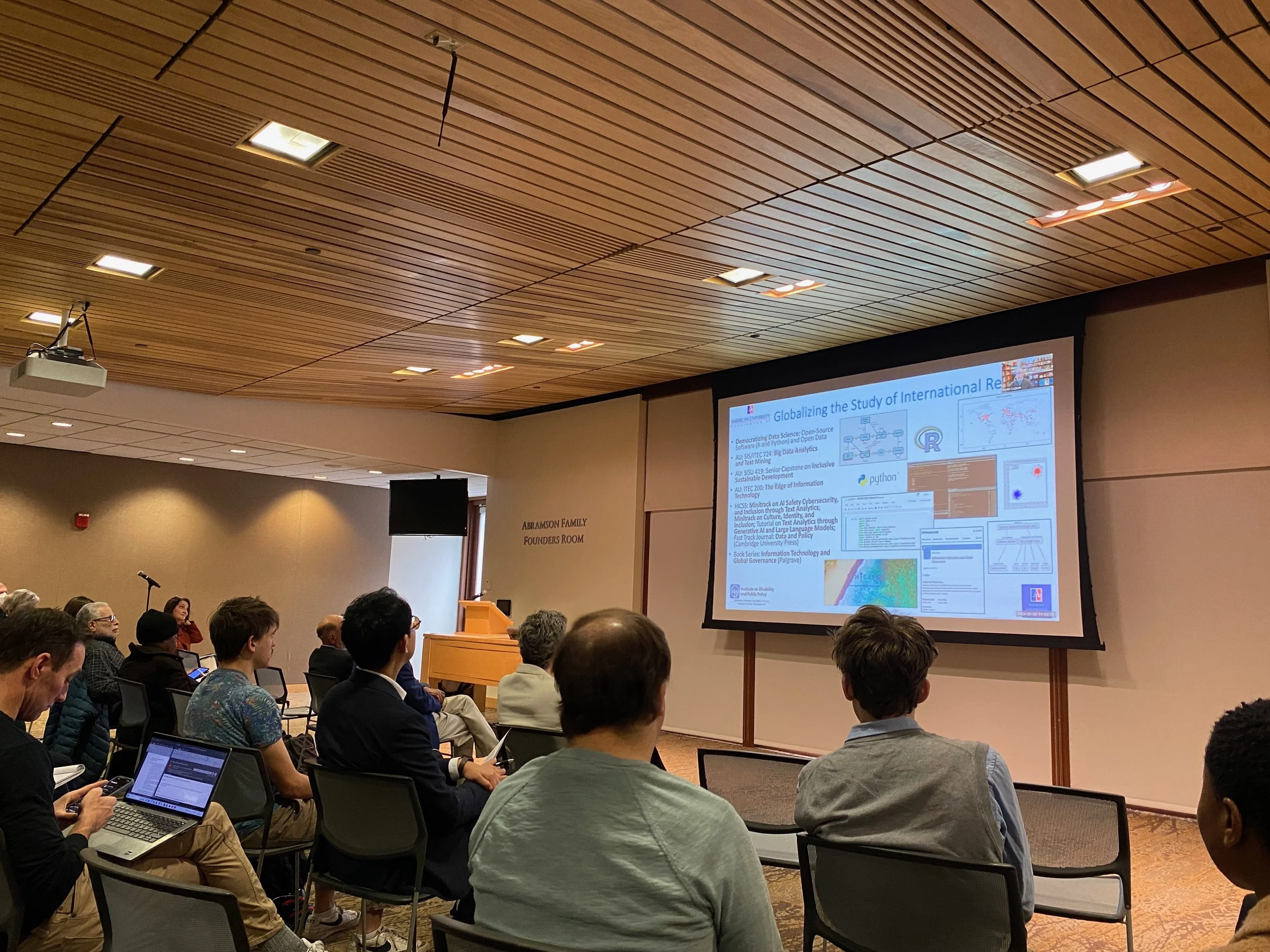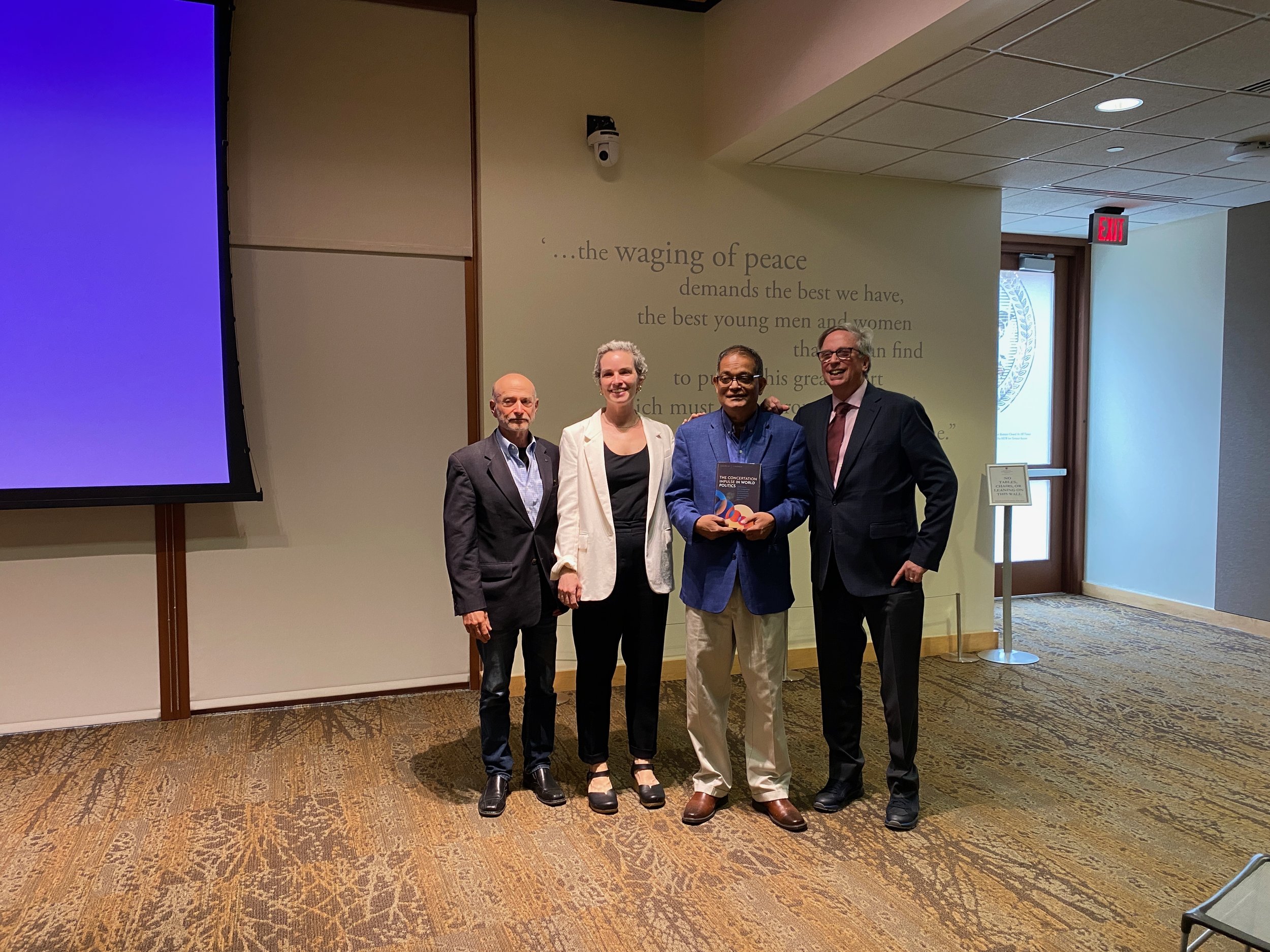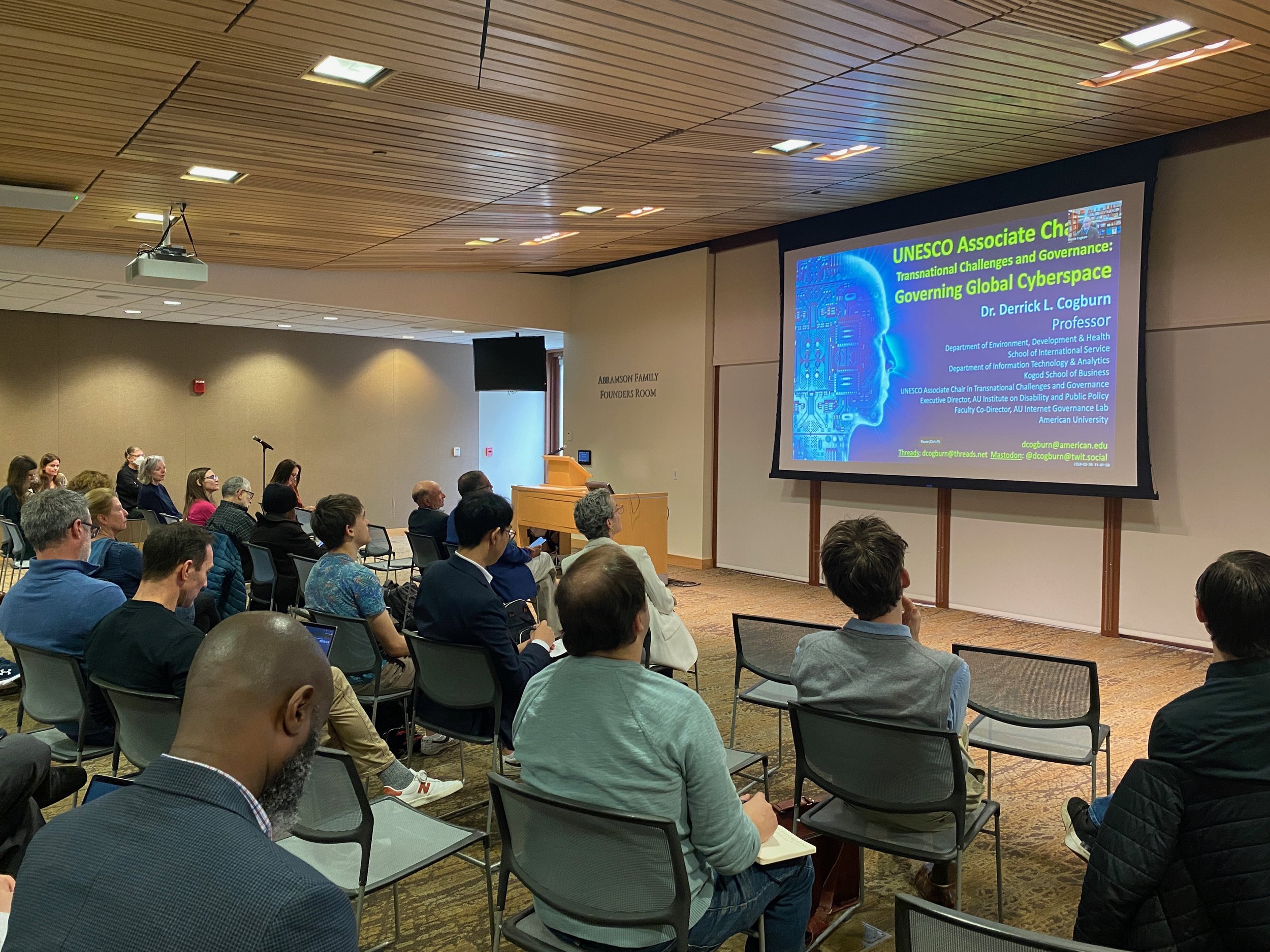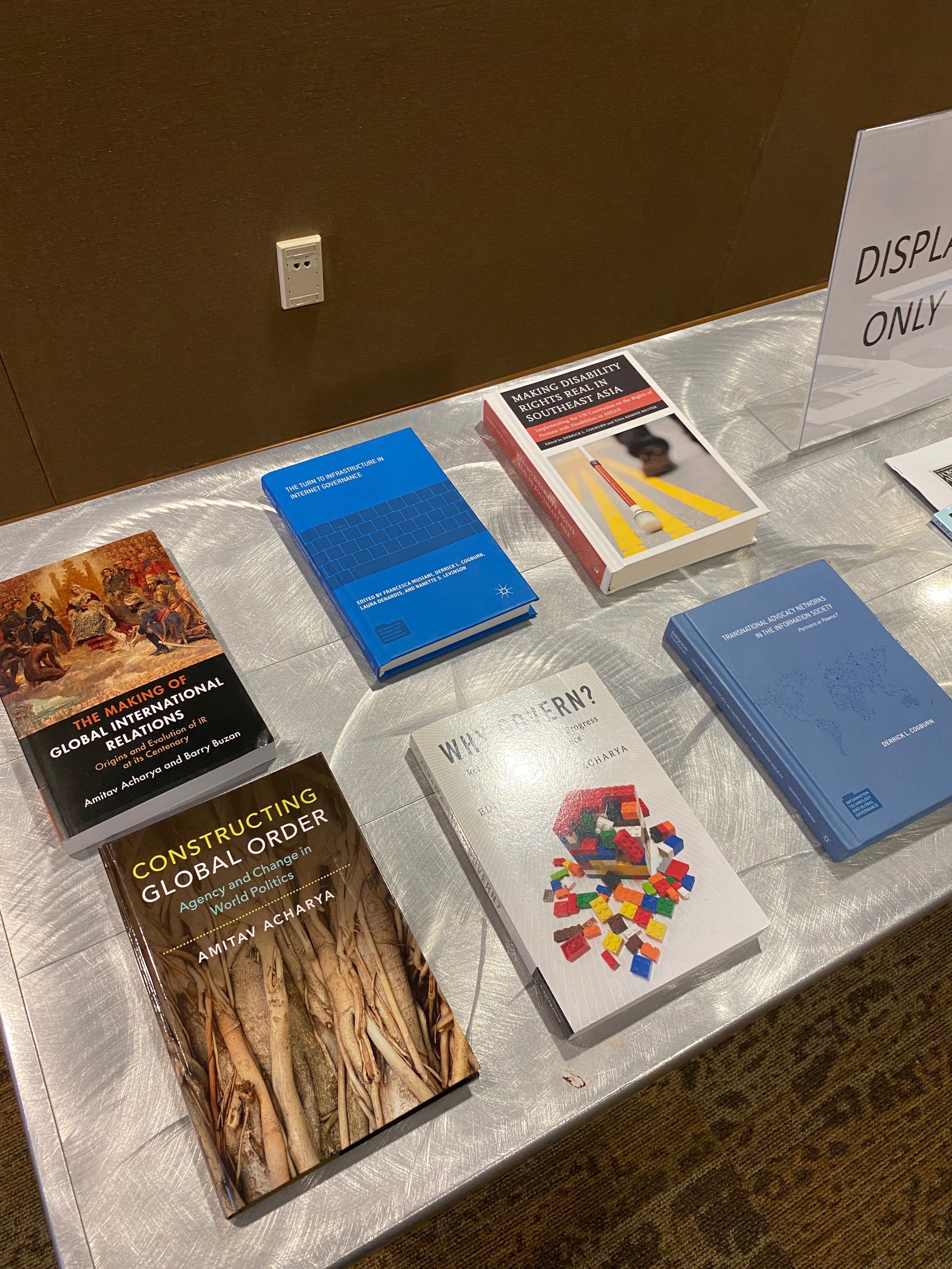The School of International Service at American University recently convened an enlightening event titled "The West, the Rest and the Emerging Multiplex World” to recognize the UNESCO Chair in Transnational Challenges and Governance. The event commemorates the 4th renewal of the UNESCO Chair. Amidst growing concerns over global conflicts in Europe and the Middle East, the event served as a forum for experts to explore the evolving landscape of international relations, future of global cooperation, and developing inclusive interventions. The event featured a lineup of esteemed speakers to discuss global cooperation and governance.
Dr. Derrick L. Cogburn, the current Associate UNESCO Chair in Governing Global Cyberspace and American University Institute on Disability and Public Policy (IDPP) Executive Director, delivered a thought-provoking overview of his work within the Chair.
Dr. Cogburn’s insights illuminated the potential of technological advancements to assist in the collaborative management of cyber threats. Artificial intelligence, text mining software, transnational advocacy networks, and accessible telepresence robots are examples of tools and advancements that could be instrumental in facilitating global governance and improving inclusivity worldwide. IDPP’s successful implementation of accessible telepresence robots at the 2017 Global Platform on Disaster Risk Reduction was emphasized in Dr. Cogburn’s presentation. Dr. Cogburn’s roles as Professor in the Kogod School of Business Department of Information Technology & Analytics and the School of International Department of Environment, Development & Health are especially relevant to his studies on internet governance. His specialized interest in inclusive policies within digital landscapes are reflected in his work as Co-Director of the Internet Governance Lab at American University.
To read more about Dr. Cogburn’s published books, click here.
The event commenced with warm and insightful welcoming remarks by Dr. Shannon Hadet, Dean of School of International Service and Priya Doshi, Associate Dean for Faculty. Following the welcoming remarks, Dr. Amitav Acharya, the current UNESCO Chair and Professor in the School of International Service, provided an introduction to the UNESCO Chair team.
Dr. Susanna Campbell, Associate UNESCO Chair, Provost Associate Professor in the Department of Foreign Policy and Global Security, and Director of the Research on International Policy Implementation Lab (RIPIL) at American University, delivered a presentation on "Global Humanitarianism.”
To read more about her work, click here.
Dr. Louis Goodman, Faculty Fellow of the UNESCO Chair, Emeritus Dean and Professor of International Relations at the School of International Service, showcased his publication, "Multipolar or Multiplex: Interaction Capacity, Global Cooperation, and World Order."
The event culminated with a captivating keynote speech by special guest Dr. Andrew F. Cooper, Professor at Canada’s University of Waterloo Balsillie School of International Affairs. Dr. Cooper's address, titled "Recalibrating the Conceptualization of Fundamental (Cooperative) Institutions in an Emerging Multiplex World," offered profound insights into reshaping cooperative institutions to adapt to evolving global digital landscapes. He also highlighted his notable publications, such as Global Governance and Diplomacy: Worlds Apart? and The Concertation Impulse in World Politics.
